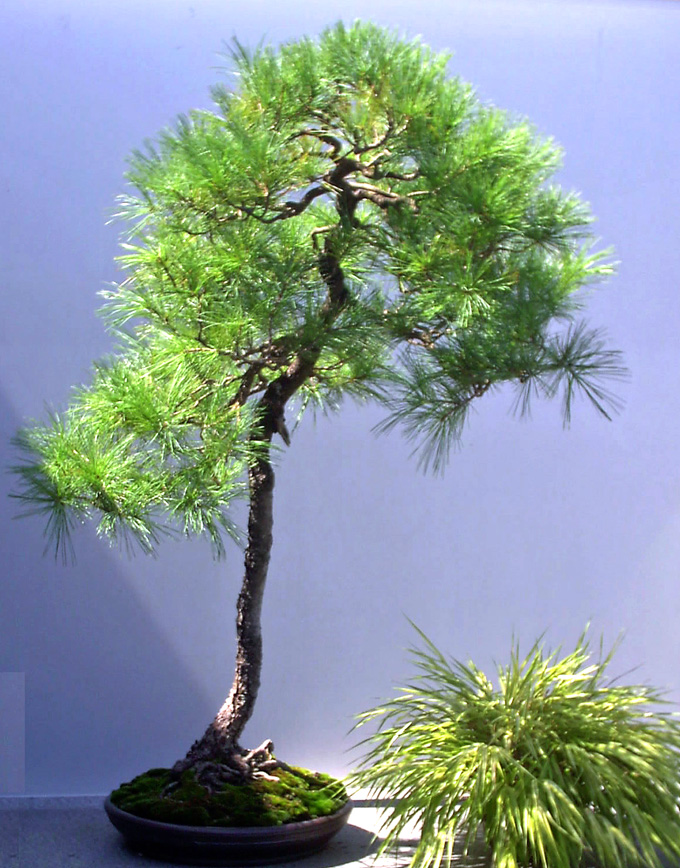 This Eastern white pine (Pinus Strobus) was donated to the Chicago Botanic Garden by Jim Doyle (Nature’s Way Nursery). The photo is by Steve Moore (Bonsai in Hoosierland).
This Eastern white pine (Pinus Strobus) was donated to the Chicago Botanic Garden by Jim Doyle (Nature’s Way Nursery). The photo is by Steve Moore (Bonsai in Hoosierland).
Common but very uncommon
There are three things that I find striking about this tree: first, it’s an Eastern white pine, a tree that you almost never see as a bonsai, even though it’s quite common here in the Northeast. Second, it’s skinny but old (the bark gives it away). Another rarity when it comes to Eastern white pines. Third, it’s a good bunjin bonsai, healthy and understated, with just enough graceful movement to please the eye. Even the long shaggy needles are so delicate, soft and vibrant, that their length isn’t really a problem (these long shaggy needles is one reason you almost never see Pinus strobus bonsai). Maybe this tree will serve as an inspiration to others and we’ll see more Eastern white pine bonsai in the future.
This short post wraps up another year of Bonsai Barking. Thank you for sticking with us over the last three years (that’s about 500 posts worth). May your bonsai be healthy and beautiful and may you enjoy a Happy, healthy and prosperous New Year!
Thank you, Wayne, for bringing us so many wonderful bonsai and interesting blog posts. I read and enjoy every one.
Thanks Wayne, and same to you and your family and be safe and be blessed.
Thanks Wayne for a very enjoyable blog. I’ve made many interesting discoveries and connections by following up on the links you include in your articles. May your trees also live long and flourish in the new year!
Wayne, I always enjoy your posts. I also live in the Northeast and have used Pinus strobus as bonsai and know the same limitations. There is another pine I use and it has very desirable characteristics but also a few possible problems. This is the Jack Pine, Pinus banksiana. It is a two needle pine with very short needles, bark which ages well, and reminds me very much of the Japanese Black Pine. I do not know how well it will do in a warm climate and it does not respond well to drastic training.
Thanks Carol,
Same to you, long life and health for you and your bonsai.
Thanks Bob,
And ditto!
Wynne,
Thank you very much for your kind words. Feedback is always good, and positive feedback is even better!